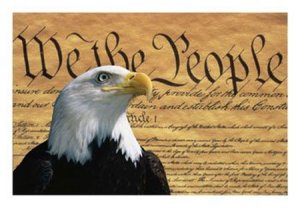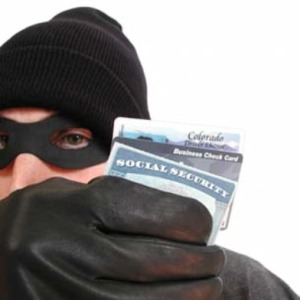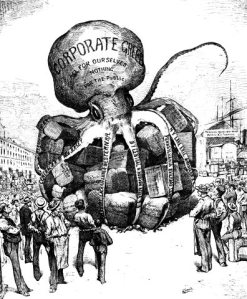 What is Free Speech? What is it not? Those are critical questions for which so many have differing opinions. The First Amendment provides Americans with the right to freedom of speech (in addition to freedom of press, freedom of religion, freedom of assembly and freedom of petition). As a framework created by our founding fathers to provide general protection for all citizens from government abuses and ensure individuals the rights of life, liberty, and the pursuit of happiness, the Constitution is one of our country’s most important legislative documents. The first 10 amendments form The Bill of Rights (which was later amended to guarantee basic rights to women, non-whites, and the poor). Freedom of speech, as granted by the first amendment, gives the general right to everyone – from scholars, to idiots, to racists, to regular people – to speak out on almost any topic. However, this right does not allow people to engage in criminal behavior nor does it guarantee anonymity. Far too many misguided individuals simplify an amendment that constitutional scholars have spent the past 230+ years debating and refining (this last point is critical in understanding that the constitution is a living document and why it has been “amended” over the past 230 year). Lest we forget that the 13th and 19th amendments had to be explicitly added in order to abolish slavery and to provide women the right to vote, respectively.
What is Free Speech? What is it not? Those are critical questions for which so many have differing opinions. The First Amendment provides Americans with the right to freedom of speech (in addition to freedom of press, freedom of religion, freedom of assembly and freedom of petition). As a framework created by our founding fathers to provide general protection for all citizens from government abuses and ensure individuals the rights of life, liberty, and the pursuit of happiness, the Constitution is one of our country’s most important legislative documents. The first 10 amendments form The Bill of Rights (which was later amended to guarantee basic rights to women, non-whites, and the poor). Freedom of speech, as granted by the first amendment, gives the general right to everyone – from scholars, to idiots, to racists, to regular people – to speak out on almost any topic. However, this right does not allow people to engage in criminal behavior nor does it guarantee anonymity. Far too many misguided individuals simplify an amendment that constitutional scholars have spent the past 230+ years debating and refining (this last point is critical in understanding that the constitution is a living document and why it has been “amended” over the past 230 year). Lest we forget that the 13th and 19th amendments had to be explicitly added in order to abolish slavery and to provide women the right to vote, respectively.
 Free speech in America, as outlined in the First Amendment, is not limitless and comes with boundaries and responsibilities. It does not guarantee anonymity nor does it protect criminal behavior. For example, the first amendment does not protect the following behaviors:
Free speech in America, as outlined in the First Amendment, is not limitless and comes with boundaries and responsibilities. It does not guarantee anonymity nor does it protect criminal behavior. For example, the first amendment does not protect the following behaviors:
- Yelling “fire” in a crowed theater.
- Drilling a hole in a hotel room wall, video taping an innocent woman undressing, and then posting it to the internet.
- Creating a blog falsely accusing your husband/wife of pedophilia because you are angry that they left you for a another mate.
- Creating a blog falsely accusing your ex-boyfriend of giving you a disease because he broke up with you before the holidays.
- Posting false claims against a business that you feel wronged you because you dislike their customer service.
- Illegally distributing copyrighted software, video, images and music.
- Posting false claims against a competitor business to gain competitive advantage in a given market.
- Saying negative things about former employees, in an effort to damage their ability to work in the future.
- Defaming someone and spreading false and malicious information about him/her because he/she was not interested in dating you, being your friend, or because you are jealous.
- Anonymously sending harassing emails because you are angry or want to get someone’s attention.
- Anonymously taking on someone’s identity to slander him/her or commit crimes or post false and malicious things on the internet.
- Video taping someone (a roommate, for example) in a compromising or intimate situation, without his/her knowledge, and streaming/posting the video to the internet or live chat.
All of the actions listed above have been done (and continue to be done) anonymously, on the web by misguided individuals, cowards, and criminals. Harassment, defamation, hate speech, identity theft, child pornography are rampant on the internet and are posted by anonymous persons who believe they cannot be traced. When those engaging this this behavior are tracked down, they often hide behind the “right of free speech”.
We must remember that all American citizens have basic, unalienable rights granted by the Declaration of Independence. It grants us the right to life, liberty, and the pursuit of happiness; this right is not secondary to free speech. None of the Constitutional amendments protect criminal behavior, and all are limited by civil and criminal laws, for which we should all be thankful.
 True anonymous speech is a wonderful and important privilege that we have in the country. Whistle blowing protects consumers against corporate greed and malfeasance. It allows citizens to report crimes in their communities without fear of negative repercussion. It protects citizens against government backlash. Anonymous voting allows citizens to freely express their political beliefs. Anonymous free speech is a positive and productive factor in our society and is not the same as criminal behavior. Whistle-blowing and voting are not the same as anonymous criminal behavior (like harassment, child porn, defamation, ect). Only cowards and criminals compare the two.
True anonymous speech is a wonderful and important privilege that we have in the country. Whistle blowing protects consumers against corporate greed and malfeasance. It allows citizens to report crimes in their communities without fear of negative repercussion. It protects citizens against government backlash. Anonymous voting allows citizens to freely express their political beliefs. Anonymous free speech is a positive and productive factor in our society and is not the same as criminal behavior. Whistle-blowing and voting are not the same as anonymous criminal behavior (like harassment, child porn, defamation, ect). Only cowards and criminals compare the two.
As I enter this new year, I do so grateful for all of my blessings in life and proud to be a citizen of the United States. Given the complexity of the world wide web, I can only hope that my fight against online harassment and defamation helps others who are dealing with similar issues. What is free speech to me? Free speech is a wonderful right that I have as an American…that does not protect harassers, pedophiles, and other criminals.

